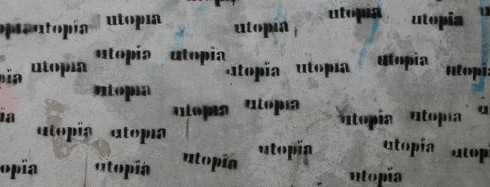Monday January 21, 10.00-22.00
During the Arab Spring revolts, a spontaneous yet coordinated activist use of social media developed. Activists established strategic communication spaces through Facebook groups, such as ‘We are all Khaled Said’ and the ‘6th of April Youth Movement’, as well as through Twitter hashtags, like #sidibouzid and #egypt. At the same time, on the other side of the world, Sina Weibo –the Chinese equivalent of Twitter– is quickly developing in one of the world’s largest social media platforms. Although the Chinese government heavily censors this platform, it is widely being used for activist purposes. This massive social media use in authoritarian states triggers various questions. How is online activism shaped by state censorship? Why do activists so enthusiastically embrace social platforms? What strategies have they developed to communicate through these platforms? And, most importantly, what role does social media activism play in revolution and political change?
To reserve your place in the two seminar sessions, please send an email to Penn Ip: t.t.ip@uva.nl (Registration for the public debate in the evening is not necessary).
See also the announcement at the ACGS website.
First seminar session: case studies on social media activism
(10.00-12.30 uur, Universiteitstheater 3.01, Nieuwe Doelenstraat
16-18, 1012 CP Amsterdam)
– Daniela Stockman – The Chinese Internet Audience: Who Seeks Political Information Online? (http://daniestockmann.net/)
· Florian Schneider – The Diaoyu/Senkaku Island Dispute Online – Analyzing Nationalism in Chinese Digital Networks (http://hum.leiden.edu/lias/staff/schneiderfa.html)
· Jeroen de Kloet, Thomas Poell & Zeng Guohua – Will the Real Weibo Please Stand Up? Chinese Online Contention and Actor-Network Theory (https://jeroendekloet.nl/)
· Miriyam Aouragh – Revolutionary Maneuvering: The Internet as a Blessing and Curse for Arab revolutionaries (http://www.oii.ox.ac.uk/people/?id=151)
· Sarah Van Leuven – A ‘Facebook Revolution’ in foreign coverage? A quantitative content analysis of journalists’ sourcing practices during the Arab Springhttp://www.cjs.ugent.be/index.php?id=50#VanLeuven)
· Thomas Poell – Social media activism (http://home.medewerker.uva.nl/t.poell/)
Respondents: Sami Ben Gharbia, Guobin Yang, and Paolo Gerbaudo
Second seminar session: reflecting on social media activism
(13.30-16.00 uur, Universiteitstheater 3.01, Nieuwe Doelenstraat
16-18, 1012 CP Amsterdam)
· Geert Lovink – Unlike Us: From Critique to Alternatives for Social Media Monopolies (http://networkcultures.org/wpmu/geert/biography/)
· Seda Guerses – An activist and a consumer meet at an online social network http://homes.esat.kuleuven.be/~sguerses/)
· Tamara Witschge – The limits to online dissent (http://www.rug.nl/staff/t.a.c.witschge/cv)
· Michael Dieter – Tactical Media, Real-Time Streams and Everyday Temporalities (http://home.medewerker.uva.nl/m.j.dieter/)
· Eric Kluitenberg – A feeling in the air – Preliminary notes on political formation in hybrid space (after the end of tactical media) (http://www.debalie.nl/artikel.jsp?personid=920)
Respondents: Sami Ben Gharbia, Guobin Yang, and Paolo Gerbaudo
Tweet, Share, Like & Censor: A public debate on social media activism in the Arab World and China
(20.00-22.00 uur, Doelenzaal, University Library, Singel 425, Amsterdam)
· Sami Ben Gharbia (advocacy director of Global Voices): one of the founders of the collective Tunisian blog Nawaat, which translated and distributed the infamous TuniLeaks, and inventor of the Cross-posting for Advocacy Strategy (http://globalvoicesonline.org/author/sami-ben-gharbia/)
· Guobin Yang (Annenberg School for Communication and Department of Sociology, University of Pennsylvanianenberg ): a leading expert on Chinese online contention, civil society, and the Chinese environmental movement (http://sociology.sas.upenn.edu/content/guobin-yang-0)
· Paolo Gerbaudo (King’s College London): researcher working on contemporary global activism, recently published the book Tweets and the Streets (http://www.tweetsandthestreets.org/)
The debate will be led by José van Dijck, professor of Comparative Media Studies at the University of Amsterdam.
